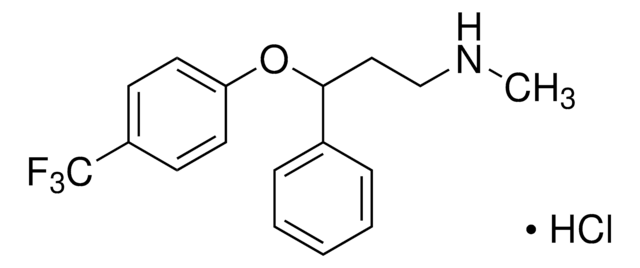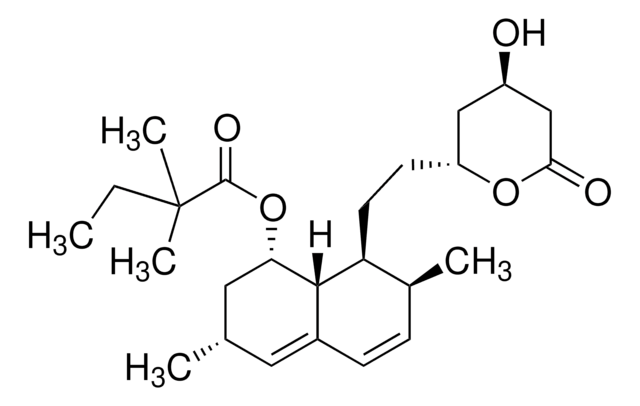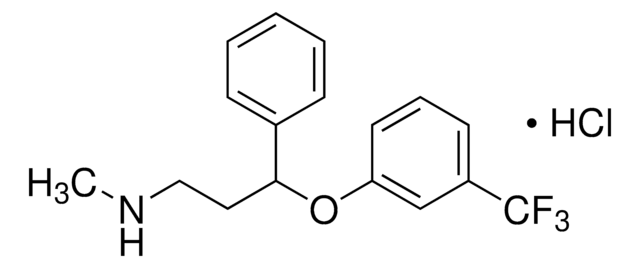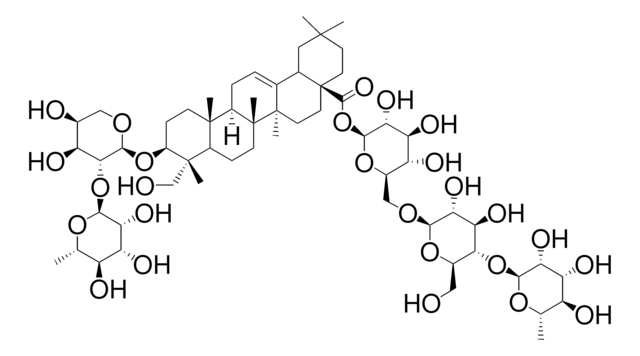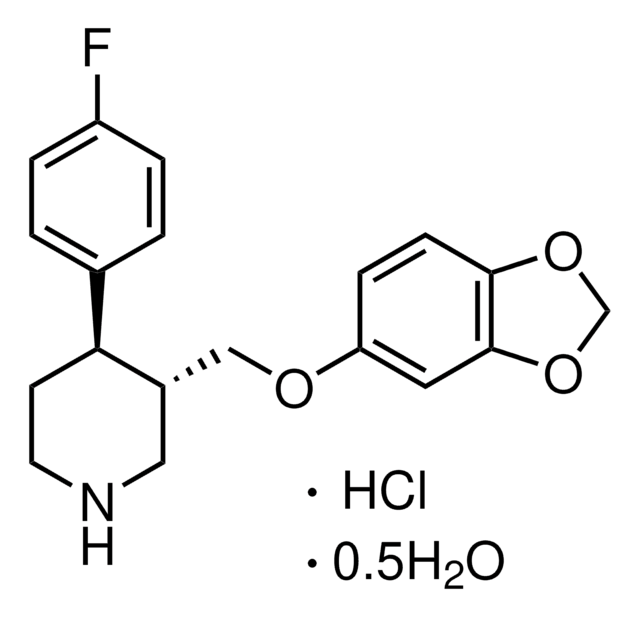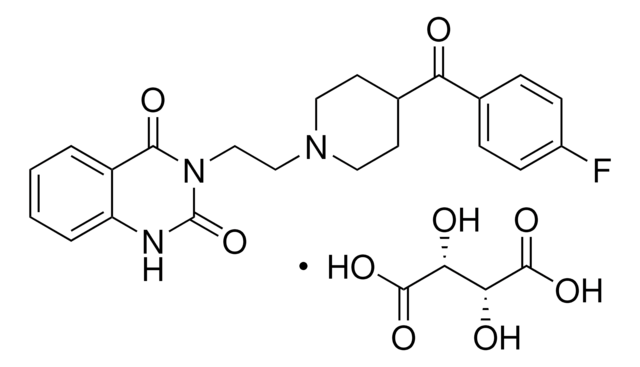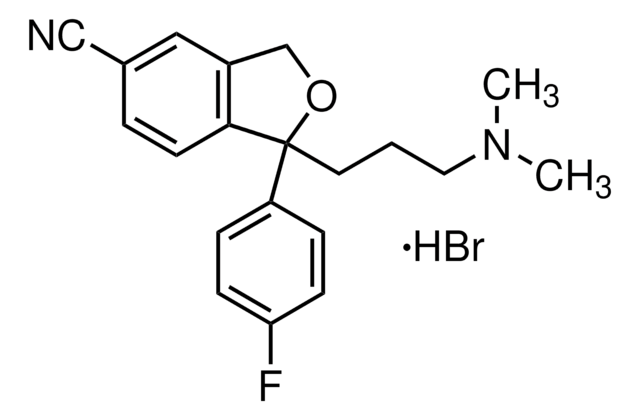1279804
USP
Fluoxetine hydrochloride
United States Pharmacopeia (USP) Reference Standard
Synonym(s):
(±)-N-Methyl-γ-[4-(trifluoromethyl)phenoxy]benzenepropanamine hydrochloride, LY-110,140 hydrochloride, Prozac®
About This Item
Recommended Products
grade
pharmaceutical primary standard
API family
fluoxetine
manufacturer/tradename
USP
application(s)
pharmaceutical (small molecule)
format
neat
SMILES string
CNCCC(C1=CC=CC=C1)OC2=CC=C(C(F)(F)F)C=C2.[H]Cl
InChI
1S/C17H18F3NO.ClH/c1-21-12-11-16(13-5-3-2-4-6-13)22-15-9-7-14(8-10-15)17(18,19)20;/h2-10,16,21H,11-12H2,1H3;1H
InChI key
GIYXAJPCNFJEHY-UHFFFAOYSA-N
Gene Information
human ... SLC6A4(6532)
Looking for similar products? Visit Product Comparison Guide
Application
- Fluoxetine Tablets
- Fluoxetine Delayed-Release Capsules
- Olanzapine and Fluoxetine Capsules
- Fluoxetine Oral Solution
- Fluoxetine Capsules
Biochem/physiol Actions
Analysis Note
Other Notes
Legal Information
related product
signalword
Danger
hcodes
Hazard Classifications
Acute Tox. 4 Oral - Aquatic Acute 1 - Aquatic Chronic 1 - Eye Dam. 1 - STOT RE 2 - STOT SE 3
target_organs
Central nervous system
Storage Class
11 - Combustible Solids
wgk_germany
WGK 3
flash_point_f
Not applicable
flash_point_c
Not applicable
Choose from one of the most recent versions:
Certificates of Analysis (COA)
Sorry, we don't have COAs for this product available online at this time.
If you need assistance, please contact Customer Support.
Already Own This Product?
Find documentation for the products that you have recently purchased in the Document Library.
Customers Also Viewed
Our team of scientists has experience in all areas of research including Life Science, Material Science, Chemical Synthesis, Chromatography, Analytical and many others.
Contact Technical Service